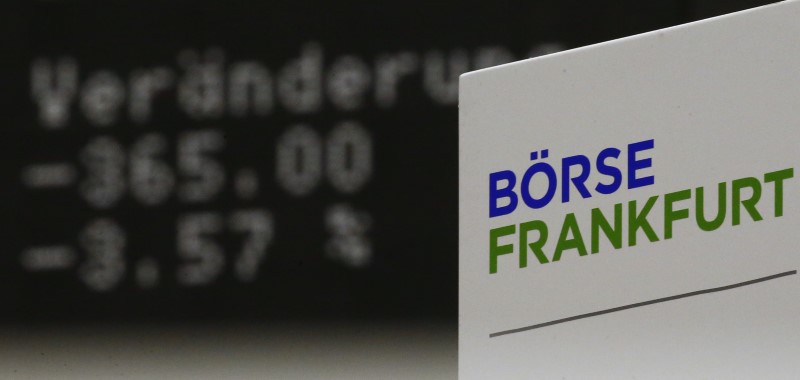By Helen Reid
LONDON (Reuters) - European shares recovered after Beijing said it would hold trade talks with the U.S. this month, spurring a risk appetite recovery, although Italian shares fell sharply as Atlantia sank.
Europe's STOXX 600 (STOXX) rose 0.2 percent by 0840 GMT on Thursday, clawing back some of Wednesday's losses which had taken it to a six-week low as emerging markets entered bear territory.
Italy's FTSE MIB (FTMIB) sank 1.6 percent to its lowest level since April 2017 as shares in motorway operator Atlantia (MI:ATL) fell 25 percent.
Italy's government said it plans to strip the group's Autostrade unit of its motorway concession and seek heavy fines following the deadly collapse of a motorway bridge in Genoa.
Atlantia said shareholders and bondholders could be hurt and the stock had its biggest fall ever when it opened after a 50-minute delay.
The Italian market was closed on Wednesday so was also catching up with the previous session's falls and political news.
"The market is quite resilient today given the falls we had yesterday with the equity market closed, and quite violent moves in bond markets," said Rory McPherson, investment director at Psigma Investment Management.
"The fear is that the Italian coalition put forward a fiscal programme that's looser than the European Commission would like and dig their heels in, which is what Conte has threatened to do."
Overall, mining stocks (SXPP) were the top gainers, rising 1.2 percent after suffering their worst day since the Brexit vote on Wednesday when metals prices sank.
Investors were calculating the magnitude of the risk from Turkey and a broader emerging markets crisis.
"I think to an isolated Turkish crisis Europe is reasonably resilient," said Psigma's McPherson.
"European banks have felt the most pain but their exposure is actually quite low. The wider risks investors are worried about is a loss of confidence and tightening dollar liquidity."
Broader markets aside, corporate results drove some sharp moves with electronic payments firm Wirecard leading the pack.
Wirecard (DE:WDIG) shares jumped 9 percent after the electronic payments firm raised its 2018 profits guidance, making it more likely it will replace Commerzbank (DE:CBKG) in the next reshuffle of the DAX index.
Earnings disappointments weighed on others.
German consumer goods firm Henkel (DE:HNKG_p) fell 3.2 percent after cutting its profit outlook, blaming falling EM currencies and higher prices for raw materials.
Swedish retailer ICA (ST:ICAA) dropped 6.9 percent after reporting second-quarter earnings which missed expectations and warning a drought could hurt meat supply.
Shares in Dutch marine and engineering company Boskalis (AS:BOSN) fell 7 percent after it reported first-half earnings that missed estimates due to loss-making transport activities at its offshore energy division.
French outdoor advertising firm JCDecaux (PA:JCDX) rose 6.8 percent thanks to analysts at Berenberg upgrading the stock to "buy", saying they thought Google's possible entry into the outdoor ad market in Europe could be good news.
German pharmaceuticals group Bayer (DE:BAYGn) lost another 5.3 percent, the top DAX faller, taking losses this week to more than 17 percent after a ruling against subsidiary Monsanto (NYSE:MON) over alleged links between a weedkiller and cancer.

The fresh blow to the stock came from a report in WirtschaftsWoche saying farmers in Arkansas and South Dakota have filed class action lawsuits against Monsanto.